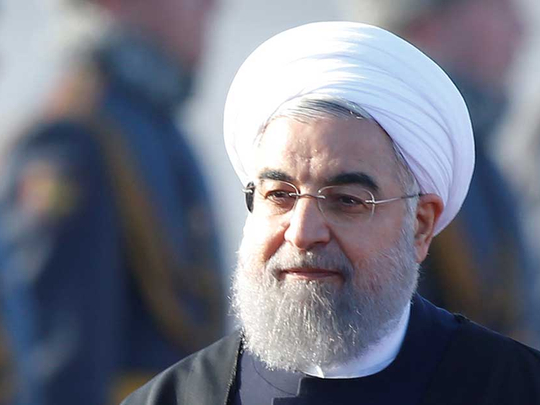
Tehran: President Hassan Rouhani’s reelection campaign received a boost as Iran’s influential speaker of parliament criticised spending pledges put forward by conservative rivals as unaffordable.
“The government does not have the ability to multiply subsidies by two or three,” Ali Larijani said in a speech in the central province of Qom. “Given the government’s revenues and expenses, it’s not feasible to increase” the $46-billion subsidy Bill each year, he said on Monday, according to the official Islamic republic News Agency.
The intervention by Larijani, a conservative politician from a prominent family, could help direct some support towards the president when Iranians vote on May 19. His main challengers — cleric Ebrahim Raisi, an ally of Supreme Leader Ayatollah Ali Khamenei, and Tehran Mayor Mohammad Baqer Qalibaf — have found fault with aspects of Rouhani’s economic record, in particular what they say is his failure to turn the 2015 nuclear deal into the promised higher incomes and new jobs.
Raisi has said he would seek to “eradicate” poverty and multiply two- or three-fold subsidies for the poorest. In comments on state television late on Monday, Qalibaf spoke of his “urgent” plan to look after the needy. Qalibaf, who is also from the conservative camp known in Iran as the “Principlist” faction, said if elected he would increase monthly cash payments to low-income Iranians from 450,000 rials ($14 or Dh51.38) to 1.5 million rials.
Rouhani has sought to target a payment scheme started under his predecessor by limiting the assistance to the most in need.
Rouhani’s efforts to ensure the payments are targeted at those who need them have met with only limited success.
“All the candidates need to present a programme to boost production and employment rather than put forward slogans that cannot be implemented,” Larijani said in separate comments in recent days, according to local media. Contenders must “lay forth the problems as well as their solutions rather than only say things to attract votes”, he said. Under Rouhani’s government, “steps had been taken” and the nation was exiting “the difficult conditions of the past”.
Since Rouhani won the presidency in 2013, the Islamic republic has emerged from more than a decade of sanctions imposed over its nuclear program. The economy is growing, oil output is up and foreign companies — enticed by a largely untapped market of 80 million — are exploring opportunities. But many voters are disenchanted with progress, opinion polls and his opponents suggest, with benefits from the accord yet to reach the majority of poorer Iranians.












